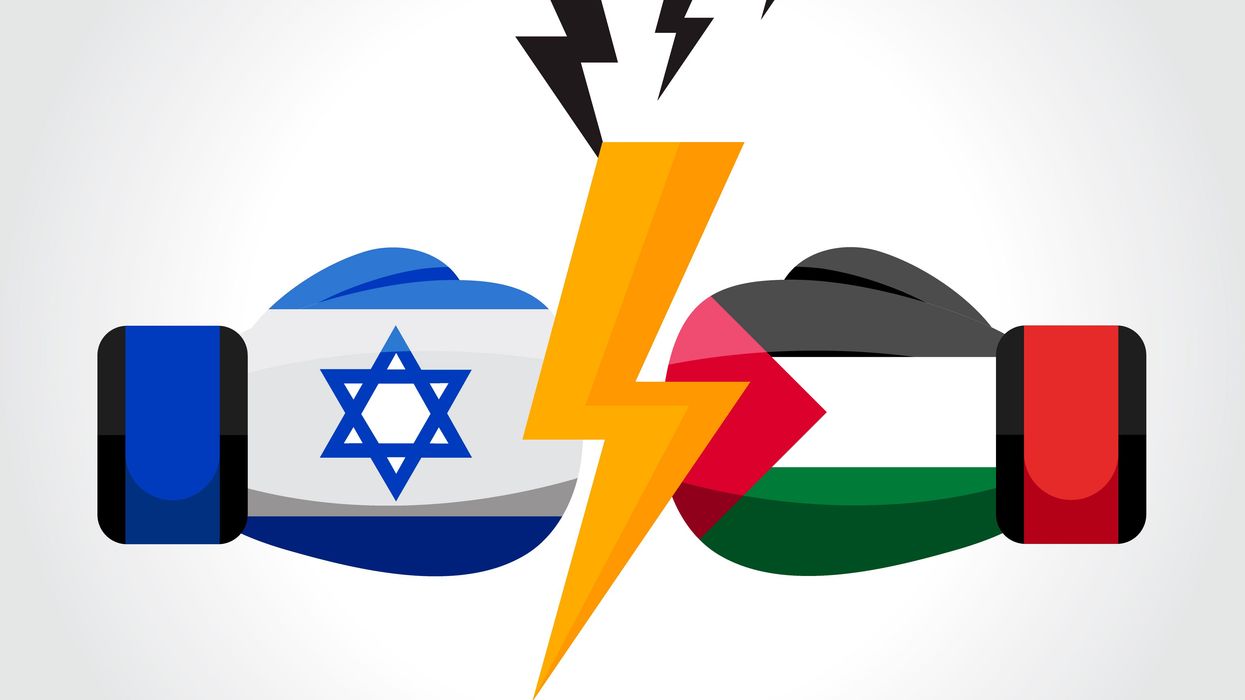Anderson edited "Leveraging: A Political, Economic and Societal Framework" (Springer, 2014), has taught at five universities and ran for the Democratic nomination for a Maryland congressional seat in 2016.
The Palestinian situation concerns Israel and Palestinians in Gaza, the West Bank, and a range of Arab countries, including Jordan, Egypt, Syria, Yemen and Saudi Arabia. Moreover, Hamas, which the United States designates a terrorist organization, is obviously part of the equation, as is Fatah and the Palestinian Authority in the West Bank. It is therefore very difficult to make sense of terms like “pro-Palestinian” or “pro-Israel” when one is talking about either the current war or one's position on the future of the relationship between Israel and the Palestinians.
What does it even mean to be pro-Palestinian? Which Palestinians and Palestinian platforms does one support if one is pro-Palestinian?
Someone who is pro-Palestinian might be supportive of Palestinian civilians in the current war but also in favor of a two-state solution or confederation solution to the ongoing conflict between Israel and Palestinians. On the other hand, someone who is pro-Palestinian might be supportive of Palestinian civilians in the current war as well as supportive of Hamas and the effort to destroy Israel and Jews in Israel because he or she denies that Israel has a right to exist. Many people who are pro-Palestinian, in either sense of the term, like to say they are Pro-Palestinian and many are very passionate about saying it. The problem is that saying you are pro-Palestinian is not informative and can be very misleading.
The same holds for people who say they are pro-Israel. Someone who uses that term could be supportive of Israel in the current war and also supportive of a two-state solution or a confederation solution. On the other hand, someone who uses these words could be supportive of Israel in the current war but against the idea of a two-state solution or a confederation solution or indeed any solution to the Palestinian situation.
What would truly eliminate confusion is if people would first identify their overall position on the Israeli-Palestinian conflict. The key is to know if someone thinks there is a way to create a map of Israel, the West Bank, and Gaza that enables Jews and Palestinians to live in peace. This can be called the "Peaceful Coexistence Model." Thus someone can either stand for peaceful coexistence or not. Hamas, for one, is against the idea of peaceful coexistence. Iran is also opposed to the idea. The Palestinian Liberation Organization and the Palestinian Authority, on the other hand, have appeared for years to be for peaceful coexistence, although they have sharply criticized Israel for building up too many settlements in what they regard as Palestinian land given to them by the 1993 Oslo Accords.
Regarding the war itself, it is best to spell out specifically where you stand. There are not two clear camps. For example, you can be for peaceful coexistence, argue that Israel has a right to defend itself, oppose the precise way Israel has been trying to dismantle Hamas, and support the humanitarian pauses and hostage/prisoner exchanges as they have proceeded so far. This is the position of the Biden administration and many other countries. Alternatively, you can be for peaceful coexistence, support the hostage/prisoner exchanges, but essentially favor a cease-fire and an end to the war. If that is your position, then you must explain how there is a path to peaceful coexistence if Hamas has not been dismantled, recognizing that Hamas has threatened to attack Israel over and over again.
If you are not in favor of peaceful coexistence, then you should say so. At that point, you can make it clear that you support Israel against the Palestinians in every sense or that you support the Palestinians against Israel in every sense. Theoretically, you could say you are pro-Israel or pro-Palestinian, but this will be very confusing because others might be using these terms even though they favor peaceful coexistence. Best therefore to express your total commitment to one side rather than the other in some other way.
Overall, if the media, nonprofit organizations and citizens themselves, especially in their families, dropped the terms pro-Palestinian and pro-Israel. there would be less confusion. Even more, there would be less unnecessary polarization and strife where people may favor a form of peaceful coexistence but the language they use to identify their positions may suggest just the opposite.




















Trump & Hegseth gave Mark Kelly a huge 2028 gift